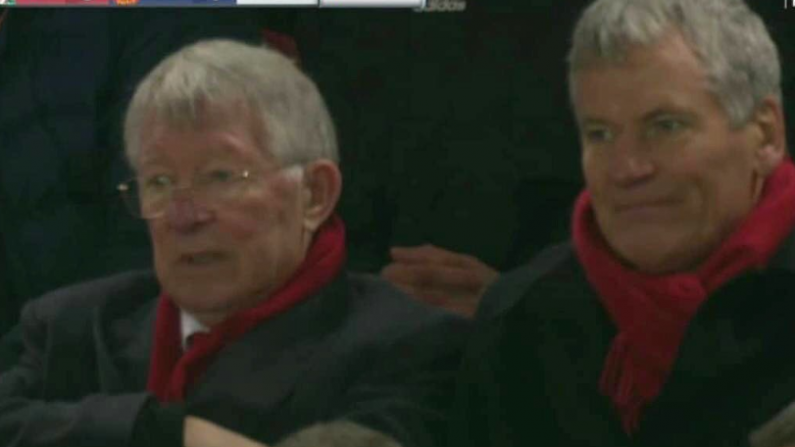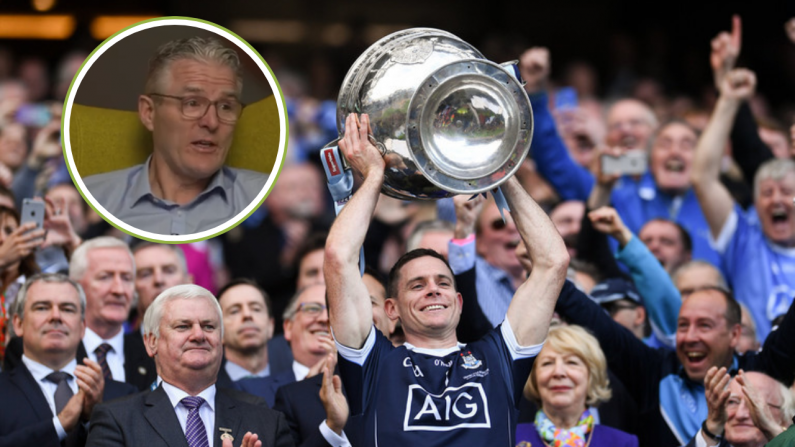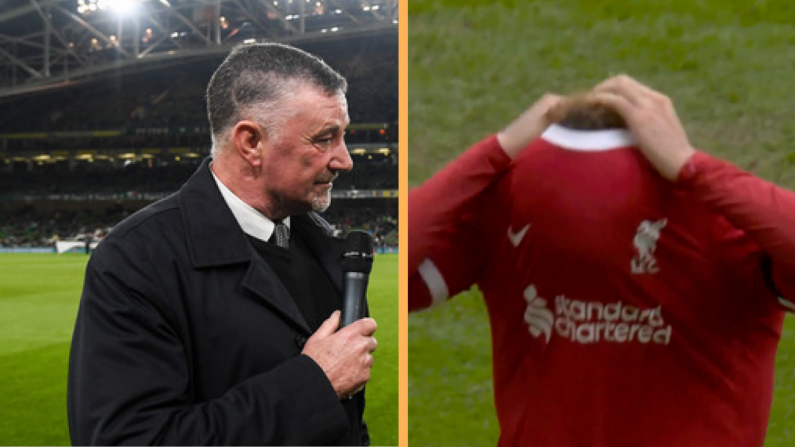As he sat morosely in the Anfield stands watching his dynasty crumble amid internal chaos, as a quarrelsome manager bumped heads with a disinterested squad foisted upon him by a supine board with no discernible plan other than to further monetise their own errors, it's just as well that Alex Ferguson has a keen understanding of what makes a civil war.
Ferguson's historical interests gravitate to internecine conflicts. He spoke to the late Colm Murray on RTE Radio in 2010 about his fascination for the Irish Civil War and his respect for Michael Collins. "If you remember, he signed his ‘death warrant’ that day when he signed the Treaty with partition", opined Fergie.
A few years later, in an interview on American network television with Charlie Rose, Ferguson spoke of his interest in the American Civil War having spent months commuting to training listening to historian Gary Gallagher talking about the subject; tapes gifted to him by Gordon Brown.
The elements of these histories that Ferguson admired most were the qualities he admired most about himself.
As friendships with Brown and Tony Blair attest, Ferguson is a political man, and his longevity and success at United was a political triumph - he rooted his influence widely and deeply, with rebels ruthlessly dispatched.
He therefore admired the political craft of Abraham Lincoln, telling Rose that Lincoln "was very good at not making quick decisions; he thought it through and decided thereafter". That he spoke approvingly of Collins' network of spies in Dublin - "his network of people in Dublin was unbelievable" - is unsurprising given that Ferguson built the United empire on a thousand whispers and hundreds of terse words.
He admired the "romantic" nature of the Black and Tan War and the Confederate mission, and frequently used the same word to describe the improbable comebacks that defined he and United.
He didn't, however, share the fundamental tenet of these histories. Ferguson chose not to rebel, and that's part of the reason Manchester United are such a lousy football team today.
As the manager, Ferguson served his own interests. His genius was such that what was best for Alex Ferguson was best for Manchester United, but that's no longer the case.
The reasons for United's current, miserable stasis have been well-argued. Fans, players and manager are all enervated by the Disneyification of the club by the Glazer family, who have loaded the club with debt and yet fling money about wantonly and wastefully in a bid to keep eyeballs on their investment.
The lack of football knowledge at decision-making levels has left United with an expensive manager lumbered with an imbalanced squad of expensive attacking players inimical to the manager's approach. Signings are justified in regard to the bottom line - Alexis Sanchez makes sense as he joined instead of going to City, and legions of United fans will therefore triumphantly retweet a video. But ever since, Sanchez has become like a drummer in Spinal Tap - turns up, plays intstrument...disappears.
As the club is currently constituted, his only legacy will be enormous wage inflation.
If reports today are true, then even doing the decent thing to the Mourinho reign is seen in purely financial terms - he will only be fired when Champions League football is mathematically impossible.
Everything is measured in terms of price, and not value; ticket prices rise, debt skyrockets, actual enjoyment flatlines. Since taking over in 2005, the owners have drained a billion pounds from the club in interest, costs, fees, and dividends.
This is the reality of late-era Glazerism.
Rather than rebel against it, Ferguson went along. "We have a great relationship, they never bother me, they never phone. They never interfere. What more can you ask for?" said Ferguson at an event in Doha in 2010, where he also spoke in support of Qatar's bid for the 2022 World Cup.
When Wayne Rooney had negotiated his wage increase in 2010, for example, Joel Glazer texted Ferguson to ask how he felt about the increase. "I told them I did not think it fair that Rooney should earn twice what I made", was Ferguson's response. Glazer immediately said: ‘I totally agree with you but what should we do?, to which Ferguson said, “It was simple. We just agreed no player should be paid more than me".
This isn't to criticise Ferguson for being greedy - this was what he believed would make Man United successful and he was right. But it is costing them now.
Ferguson's dispute with the club's former owners over Rock of Gibraltar was critical in the Glazers taking over in the first place, and his subsequent failure to speak out against them allowed the Glazers run the club as a purely financial institution, and the symptoms of that ignorance of the football side of the club are festering now.
Ferguson's silence allowed the Glazers model United to serve their own financial interests. He could have said that their policy of loading the club with debt was a dangerous one, or could have spoken on behalf of the fans worried at their being disenfranchised. He had the power to act as the last bulwark for tradition against the Glazers' rampant commercialism, but chose not to.
This suited Ferguson but not his successors, and now that he is no longer the manager, the poverty of the profit principle has been laid bare on the pitch. There is no coherent direction from the upper echelons of the club, bar the need to make money and the belief that it will fix whatever problems that arise.
That's not the case when Manchester City are just as rich, and, along with Spurs and Liverpool, have a squad and recruitment policy moulded in the image of a superb coach.
Look what Mourinho’s awful football has done to Sir Alex Ferguson ??? #MUFC pic.twitter.com/cOcjS9LMok
— United Related (@UnitedsRelated) December 16, 2018
The only governing football principle seems to be the echo of Ferguson's demand to "stand by our new manager", but United have given all the post-Fergie managers too long, including Mourinho. David Moyes should never have had the job in the first place, and his most compelling case for the job was that he was Scottish, and Ferguson's shot at vicariously reproducing his success all over again.
Perhaps this is all the natural consequence of the fall of an empire: that Ferguson's greatest strength at United necessitated the current leadership void; the lack of holistic, joined-up thinking a corollary of a dynasty housed in one man's head.
During the interview with Charlie Rose, Ferguson agreed with the host's assertion that "war is hell, and worst for those who fight it". In his quieter moments, perhaps Ferguson will come to regret his ignoring the cudgels at United because as he well knows, the final chapter of the history of Alex Ferguson at Manchester United will be written by someone else.













